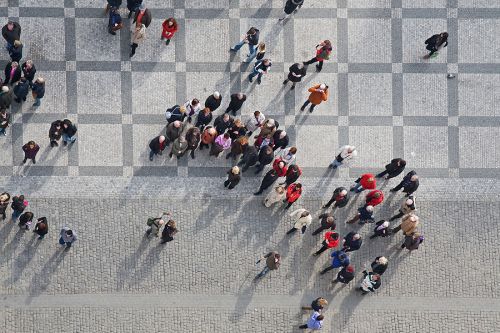The case of the Little Sisters of the Poor before the Supreme Court may determine if the United States will continue to have a diverse public square, said the head of the U.S. bishops’ religious liberty committee. The case is about “the tyranny of uniformity,” Archbishop William Lori of Baltimore told CNA. The Little Sisters of the Poor have challenged the HHS contraception mandate on the grounds that it violates their freedom to live out their religious beliefs in public. Archbishop Lori said the administration is effectively telling the sisters, “you must play by our rules,” he explained; but the Church is “different, and we still have our place in the public square.” “We would like to run our health insurance programs in a way that conforms as well to our moral teaching,” he explained. In 2012, the Obama administration mandated under its health care law that all employers provide coverage in employee health plans for contraceptives, sterilizations, and drugs that can cause abortions. They later offered what it called an accommodation for some religiously-affiliated groups and non-profits that objected to the mandate on grounds that it forced them to act against their consciences. In the revised rules, the parties would notify the government of their religious objection, who in turn would direct their insurers to provide the mandated coverage. Critics charged that the cost for the drugs and procedures would still be passed on to the employers, and many of the objecting parties, including the Little Sisters of the Poor and the Archdiocese of Washington, said they were still being forced to act against their conscience under the offered accommodation. The Little Sisters of the Poor challenged the mandate in court but lost their case at the Tenth Circuit Court of Appeals in July. The ruling determined that the government’s accommodation did not put a substantial burden on their free exercise of religion. The sisters filed for and received a temporary injunction against the law and appealed their case to the Supreme Court, which agreed Nov. 6 to hear the case along with the other challenges to the mandate. The injunction will expire if the Supreme Court rules against the sisters. Archbishop Lori insisted the Little Sisters should be exempt from the mandate because of their religious work. “When you go to see the sisters, as I do — I’m very good friends with the Little Sisters of the Poor — and you spend any time at all in their home, you know it’s a work of religion,” he said. “You know it’s motivated by faith. And so it’s hard to understand why a ministry such as that would not be completely exempt from anything that compromises their faith in any way.” Archbishop Lori spoke with CNA on the second day of the annual fall general assembly of the U.S. bishops' conference in Baltimore. During the first two days of the session the bishops adopted a formal statement on pornography, approved an amended version of their 2007 voting guide “Forming Consciences for Faithful Citizenship,” and elected six committee chairs. In his Nov. 16 address to the bishops on religious liberty, Archbishop Lori warned that current threats to the beliefs of religious institutions, such as the HHS mandate, could dismantle the diverse public square that is so necessary to a free society. If religious organizations such as schools and hospitals must close their doors rather than comply with a law that forces them to act against their religious beliefs, he explained, the public square will become less diverse and pluralistic. “We are not isolated individuals, but members of communities,” he said, adding that such communities as schools, families, and charities should all have the freedom to practice their beliefs in public. “The struggle for religious freedom is not only a struggle for the survival of our institutions, important as that is, but indeed it is a struggle for a public square that welcomes a plurality of visions and communities,” he told the bishops. “We are standing for the space that civil society needs” in order to flourish, he continued. “Pope Francis has called attention to the need for a healthy pluralism. This is a vision that is attractive. Who really wants a secularized public square stripped of all differences?” Pope Francis spoke very clearly about this when he was in the U.S., Archbishop Lori continued. “I think the Pope gave us [U.S. bishops] great support when he was here,” he told CNA of the Pope’s September visit to the U.S. “He put it [religious freedom] in the context of serving the poor and the needy and the vulnerable, and so have the U.S. bishops done as well.” Pope Francis even made a short, unscheduled stop at the Little Sisters of the Poor home in D.C. as a sign of support for them in their mandate case, the archbishop pointed out. That detail was first revealed in the Sept. 23 evening press conference by the director of the Holy See Press Office, Fr. Federico Lombardi. In Philadelphia that weekend, Pope Francis had warned of “the challenge of modern tyranny which imposes what he called a ‘false uniformity’,” Archbishop Lori continued. In his address to the general assembly, the archbishop also announced developments for next year’s “Fortnight for Freedom,” a two week-long campaign of prayer, education, and action for religious freedom from June 21-July 4. “Witness to Freedom” will be theme of the 2016 fortnight, an opportunity to “remember those witnesses past and present throughout the Church … who testify to the meaning of freedom of conscience and of obedience to the truth,” he explained. First-class relics and possessions of Sts. Thomas More and John Fisher will make a U.S. tour in 2016, he noted. All this will be an opportunity for Catholics “to pray for the modern-day martyrs for faith.”
Photo credit: www.shutterstock.com.

